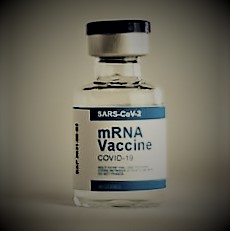How effective are different vaccines against the Delta Variant?
September 8, 2021
What is the Delta variant?
A mutation of the original COVID-19 virus, the Delta variant, is more than twice as contagious as its original counterpart and is responsible for about 93% of the COVID-19 cases in the United States. Most of the hospitalizations that the Delta variant is responsible for are not breakthrough cases. The majority of the cases are from unvaccinated people. The Delta variant was first seen in India, and it is about 60% more transmittable than the Alpha variant. Our scientists are trying to find more information about the variant and how the vaccines may work better against the variant.
Different vaccines protection rates
Since we have very few Delta-specific experiments, the data and information can change. However, what we know as of right now is that the Moderna vaccine seems the most effective against the Delta variant: with about 94.1% effectiveness. The Pfizer vaccine seems’ to be the second most effective vaccine against the Delta variant: which had about 53% effectiveness. The J&J vaccine is around 33% effective against the Delta variant. The vaccines protection rate fades away as time goes on, which is why many healthcare professionals are suggesting a booster shot. This number gap might have something to do with the different types of vaccines and what they were designed to protect against/do. The Pfizer vaccine and the Moderna vaccine are examples of the new way to make vaccines known as the mRNA vaccine, whereas the J&J vaccine is more like the traditional virus-based vaccine. The mRNA vaccine is a new kind of preventative vaccine that teaches your cells how to make a protein, or part of a protein, that triggers an immune response inside our bodies. Traditional vaccines train your body to fight against the virus but, with how fast COVID-19 mutates, it is hard to get one vaccine that works against all variants. So yes, vaccines do make a difference in the fight against COVID-19.
Booster Shots: Are they worth it?
Recently a preliminary study came from Isreal that suggested the Pfizer booster shots they were giving out were around 70% effective in preventing infections in people 60 years old or older. Many experts say that the booster shots will help people’s immune systems fight this new Delta variant. On August 12th, the FDA approved booster shots for immunocompromised systems. Many different reports suggest that sometime in September, the Biden administration will detail a booster plan. The controversial idea behind the booster shots is mostly from third-world countries that are having a hard time getting access to the first two shots of the vaccine. However, recently, the United States has stocked up on the vaccine, so we are not unprepared for this new wave of sickness.
What are the lasting effects of COVID-19?
COVID-19 can have long-term effects that cause fatigue, breathing difficulties, and brain fog, but it varies from person to person. Experts are not entirely sure what causes long-Covid: it can last for weeks or sometimes months. If you are vaccinated, you have a 50% less chance of having any long-term effects from the Dela variant, a study from the UK suggests.










Celeste A Hall • Oct 2, 2021 at 11:56 pm
Ms. Caitlyn, you are growing up tall, steady & true and I am grateful that you have this opportunity to shine and that you are courageous and confident in your pursuit of what inspired you. Great article!